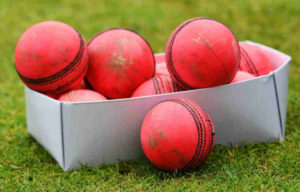Home » Commentary » Opinion » Doing the right thing
· The Spectator: Flat White
 As calm settles over the cricket ball-tampering crisis and the extraordinary public reaction to it, and as the game’s authorities look to the future, we might ask what has been the meaning of it all. Why so many words, such passion, such universal dismay?
As calm settles over the cricket ball-tampering crisis and the extraordinary public reaction to it, and as the game’s authorities look to the future, we might ask what has been the meaning of it all. Why so many words, such passion, such universal dismay?
The answer lies in the nature of the game, its history, and its place in our lives and culture. And, above all, in the moral betrayal of its rules. Therein is a shame that engulfs the rest of us.
The history of cricket is tied to the early and unique leisure of the English. No other nation was so early in inventing and embracing games and making them a lively part of a distinctive way of life; a part of what we now call ‘civil society’ where a free people invent and support their own recreations and social improvements.
That was a heritage not only for us but wherever the British Empire left its mark.
Games have rules; and to break the rules is to destroy whatever the game strives to achieve. The players must act honourably. It is not extravagant to see the rules as underpinning a moral order. Nor is it fanciful to link the English passion for creating games to England’s early achievement of rules for the whole society in establishing the rule of law.
So cricket as a game and recreation has a history and purpose of fundamental importance that encapsulates a great deal of the best things in our culture. It is from this perspective that we must come to understand the public outrage at the ball-tampering and the part played by the captain and his colleagues.
Deep down the public reaction points to a moral alertness that many feared was no longer with us. This is the good part of a bad event.
But we must now consider the character, motivation and reactions of the perpetrators of the tampering. They were not the authors of a spur-of-the-moment aberration in the heat of a struggle. It was an act deliberately and shamefully planned before the match. When the players sully the game we are sullied too.
These are not bad men, but they were on that occasion morally blind and insouciant men. It is fitting that they should be made to acknowledge the betrayal not only of themselves and their reputations but of the whole nation’s reputation.
Nevertheless, one could not but help sympathise with their anguish.
This was especially so with the public statement and confession by Captain Steve Smith. We were spectators to a man undergoing an agonising revelation that shocked and unmanned him. Watching his realisation that he had betrayed himself and those he loved, and the game he loved, brought the tears not only to his eyes, but to ours too.
And in that microcosm of public appearance, apologia and punishment, much more was revealed and at stake than a man’s reputation. The honour of our country was at stake along with the realisation that cricket is not merely a game, but also a moral engagement by all concerned.
This whole matter must be remembered and its lessons obeyed. Australians love to win, but the national image behind success must be an honourable one. This clearly means that it cannot be success at any price.
Better failure than disgrace. So don’t let sledging become an ugly weapon; limit the bouncers; and applaud great cricket by friend and foe.
The commercialisation of cricket has always threatened to destroy appropriate conduct, but it does not need to. It is notable that professional golf at the highest levels presents an image, in the main, of honourable behaviour and players confessing to breaking the rules and paying the price.
Why cannot this be the same with professional cricket? Admittedly, the two games vary greatly and there are more uncertainties in cricket than in golf. But the will to act honourably can be encouraged and this should be the objective, along with an approach to all budding players that emphasises doing the right thing.
Barry Maley is a senior fellow at The Centre for Independent Studies.
Doing the right thing